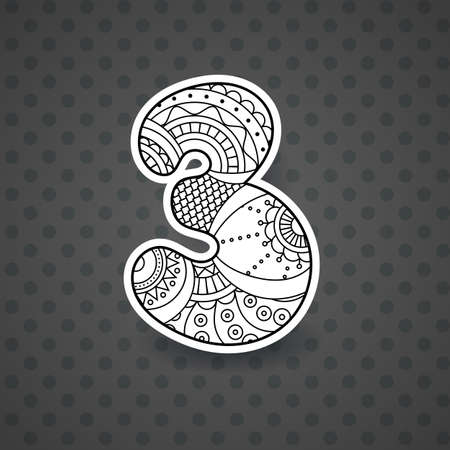1. Understanding Mental Health in the British Context
Mental health is a topic that has gradually moved from whispered conversations to public discourse within the UK, shaped by the nation’s unique blend of tradition, resilience, and understated emotion. The British mindset, often characterised by a “stiff upper lip” and a gentle reserve, has historically encouraged individuals to keep personal struggles private. This attitude is woven into the fabric of daily life, influencing how people approach their own wellbeing and seek support. However, recent years have seen a cultural shift, with greater openness and acceptance emerging around mental health challenges. In Britain, there remains a strong value placed on self-reliance and community support—neighbours looking out for one another, friends sharing a cuppa during tough times, and family bonds quietly holding fast in the background. These traditions are both a comfort and a challenge: while they foster solidarity, they can also make it difficult for some to express vulnerability or ask for help.
As we explore mental health through the lens of Tarot and self-care practices in this series, it is essential to recognise these deeply rooted values and societal expectations. By understanding the British context—the emphasis on subtlety, privacy, and respect—we can better appreciate how daily card draws and mindful rituals might fit naturally into routines. These practices offer gentle tools for reflection and support, aligning with the quiet strength often admired in British culture. Recognising this interplay of history, tradition, and evolving attitudes provides us with a meaningful foundation as we consider how Tarot can become a compassionate companion on the journey towards improved mental wellbeing.
2. Introducing Tarot as a Self-Reflection Tool
When considering tools for self-reflection and personal growth, Tarot cards often evoke curiosity and a healthy dose of British scepticism. Rooted in centuries-old tradition, Tarot is sometimes misunderstood as purely mystical or fortune-telling. However, within the modern British context—where practical wisdom meets open-minded inquiry—Tarot can serve as a valuable instrument for fostering self-awareness and emotional balance.
Respecting British Scepticism
In the UK, there is a long-standing cultural appreciation for rational thought and evidence-based approaches to wellbeing. This mindset invites us to approach Tarot not as a predictive device but as a reflective mirror. Rather than seeking definite answers, many use Tarot to prompt thoughtful questions about their emotions, challenges, and aspirations. This method aligns with the British tendency to value quiet introspection and gentle humour when facing life’s complexities.
How Tarot Encourages Self-Awareness
Tarot cards feature archetypal images and themes that resonate with universal human experiences. Drawing a card each day provides an opportunity to pause, consider one’s current state of mind, and reflect on possible actions or attitudes. This process can help individuals in the UK cultivate greater emotional literacy and resilience—qualities often celebrated in British society.
Practical Ways Tarot Supports Personal Development
| Tarot Practice | Personal Development Benefit | British Cultural Fit |
|---|---|---|
| Daily Card Draws | Encourages regular self-check-ins | Supports mindfulness without overt spirituality |
| Journaling Interpretations | Promotes honest self-examination | Aligns with love for private reflection |
| Thematic Spreads (e.g., “What do I need today?”) | Sparks constructive problem-solving | Matches preference for understated guidance |
Approaching Tarot as a tool for personal insight rather than prophecy allows individuals to maintain their critical faculties while exploring new perspectives. In this spirit, Tarot becomes less about magical thinking and more about nurturing open-minded exploration—a quality much admired in the British character.

3. Daily Tarot Card Draws: Practices and Intentions
Incorporating a daily Tarot card draw into one’s routine can be both grounding and enlightening, especially when tailored to the rhythms and sensibilities of British life. The traditional British day often values moments of quiet reflection—perhaps during a morning cup of tea or a pause before supper. These small rituals offer ideal opportunities to engage with the Tarot in a way that feels natural and unforced.
Establishing a Consistent Practice
Consistency is key to forming any meaningful habit, and the same holds true for Tarot. Many find it helpful to set aside a regular time each day—such as first thing in the morning or just before bed—to shuffle their deck and draw a single card. This gentle act, akin to reading the weather forecast or checking one’s post, becomes a dependable anchor in daily life. For those who appreciate tradition, using a family heirloom cloth or favourite mug alongside your deck can add a touch of personal history to the ritual, honouring both the past and present.
Intentional Reflection
The heart of this practice lies not merely in drawing a card, but in pausing to reflect upon its message. The British value of measured thoughtfulness comes into play here; rather than seeking dramatic predictions, use the card as a prompt for introspection. Ask yourself: What might this card suggest about my mood today? How could its symbolism encourage me to approach challenges with resilience or compassion? Let your reflections be guided by curiosity rather than certainty—a distinctly British trait.
Integrating Insights into Everyday Life
Once you have drawn your card and considered its meaning, carry its lesson with you through ordinary moments—a brisk walk on the common, a chat over biscuits, or even while navigating the bustle of public transport. Perhaps the card’s message inspires you to be more patient in traffic, more open-hearted with colleagues, or simply more attentive to your own needs. In this way, Tarot becomes less about fortune-telling and more about nurturing self-awareness and emotional balance, harmonising seamlessly with the understated yet steadfast character so often celebrated in British culture.
4. Tarot-Inspired Self-Care Strategies
The wisdom of Tarot cards can offer a gentle nudge towards self-care, especially when woven together with time-honoured British traditions. Drawing a card each day invites us to reflect and respond with practical, nurturing actions tailored for the unique rhythms of life in the UK. Below, discover actionable self-care techniques inspired by classic Tarot archetypes, harmoniously blended with beloved British rituals.
Tarot Card |
Insight |
British Self-Care Activity |
|---|---|---|
| The Hermit | Encourages introspection and quietude | Savour a solitary walk through the countryside or local park; bring along a flask of tea and take time for mindful reflection under an ancient oak or beside a tranquil stream. |
| The Empress | Nurturing energy, creativity, and comfort | Bake a classic Victoria sponge or scones, sharing them with loved ones during afternoon tea—embracing both nourishment and connection. |
| The Strength Card | Cultivates inner resilience and gentle courage | Practice guided meditation followed by journaling your thoughts over a cup of Earl Grey in your favourite mug, perhaps while wrapped in a cosy blanket by the fire. |
| The Star | Offers hope, inspiration, and calm after difficulty | Spend time stargazing from your garden or allotment, perhaps recalling poetry or favourite lines from Shakespeare—let the vastness above inspire peace within. |
| The Lovers | Invites harmonious relationships and self-acceptance | Arrange a small gathering with friends or family for a pub lunch; use this space to share openly about emotions and joys, reinforcing bonds of trust and mutual care. |
Blending Tradition with Tarot Wisdom
Incorporating Tarot-inspired insights into daily life need not be elaborate. For example, if you draw The Hermit on a rainy morning, donning your wellies for a peaceful stroll through dewy woodlands can become an act of self-renewal. Likewise, should The Empress appear when feeling depleted, preparing a comforting cuppa or enjoying homemade treats may restore both spirit and body.
A Gentle Approach to Everyday Wellbeing
Above all, these strategies honour the British penchant for subtlety and quiet strength. By merging Tarot’s age-old guidance with cherished local customs—from teatime pauses to rural wanderings—we cultivate resilience and emotional balance that feels both natural and deeply rooted in our everyday lives.
5. Navigating Stigma and Embracing Openness
The subject of mental health has long carried a certain weight in British society, where stoicism and understatement are often valued over open emotional expression. Despite recent progress, stigma around mental health remains a barrier to seeking help and fostering genuine conversation. Within this context, the Tarot offers an unexpectedly gentle and approachable tool for breaking down these walls.
The British Stigma: A Cultural Overview
Traditionally, many in the UK have been raised with the “stiff upper lip” mentality—a cultural code that encourages resilience but sometimes leads to the suppression of personal struggles. This can make it difficult to admit vulnerability or seek support, especially concerning emotional wellbeing.
Tarot as a Bridge to Conversation
Incorporating daily Tarot card draws into your routine can serve as a non-threatening entry point for exploring feelings that might otherwise remain unspoken. The symbolism and narrative structure of Tarot provide language and imagery that encourage reflection without judgement. Discussing a card’s meaning—whether it is the gentle hope of The Star or the challenging introspection of The Hermit—can open the door to sharing personal experiences in a way that feels both safe and culturally resonant.
Fostering Openness Through Shared Experience
Hosting small group Tarot sessions, whether over tea or within trusted circles, can normalise discussions about mental health. The cards act as mediators, allowing participants to project their own stories and emotions onto archetypal images. In this way, Tarot not only reduces the sense of isolation but also gently challenges the stigma by making vulnerability a shared—and thus less daunting—experience.
By embracing such approachable tools as Tarot, we honour both our heritage of quiet strength and the modern imperative for openness. In doing so, we pave the way for healthier minds and more compassionate communities throughout Britain.
6. Resources and Next Steps for the British Reader
As we draw this exploration of mental health and Tarot to a close, it is important to recognise that ongoing well-being requires both self-awareness and access to supportive resources. The British landscape, with its distinctive blend of tradition and quiet resilience, offers a wealth of avenues for those wishing to nurture their mental health while deepening their connection with practices like daily card draws.
Local Support Networks
The UK is home to a robust network of organisations dedicated to mental wellness. For immediate support or guidance, you may wish to reach out to Mind, which offers local branches across England and Wales, or SAMH in Scotland. For those in crisis, Samaritans provides 24/7 confidential support. Many GP surgeries also have mental health practitioners on staff who understand the nuances of British life and can offer further signposting.
Community and Group Activities
If you find solace in community, consider joining local support groups or mindful meet-ups—many libraries and community centres host regular sessions focused on well-being. Look for events at venues such as The British Library or your nearest city library, where open-minded discussion about self-care, mindfulness, and even introductory Tarot workshops often take place. These spaces foster gentle camaraderie—a hallmark of the British spirit.
Reading Suggestions Rooted in British Tradition
- "The Wildwood Tarot: Wherein Wisdom Resides" by Mark Ryan & John Matthews – a deck and guidebook steeped in British folklore and natural wisdom.
- "Notes on a Nervous Planet" by Matt Haig – offering relatable reflections on modern anxiety from a distinctly British perspective.
- "Mindfulness: A Practical Guide to Finding Peace in a Frantic World" by Professor Mark Williams & Dr Danny Penman – blending evidence-based practice with understated guidance suited to the UK mindset.
Online Communities for Ongoing Inspiration
For those seeking connection beyond the local high street, online forums such as the Mind Community or the UK-based Tarot Forum provide spaces for gentle exchange about both mental health and spiritual exploration. These platforms allow you to share your experiences quietly or seek advice without pressure.
Moving Forward with Gentle Curiosity
Remember that nurturing your mind is an ongoing journey—one that benefits from patience, honest reflection, and respectful engagement with both inner wisdom and outer support. Whether you continue drawing cards each morning, join a book group at your local library, or simply take time for a peaceful walk along the countryside, let your path be shaped by curiosity and kindness towards yourself. In true British fashion, there is no need for haste—only steady progress towards understanding and care.


